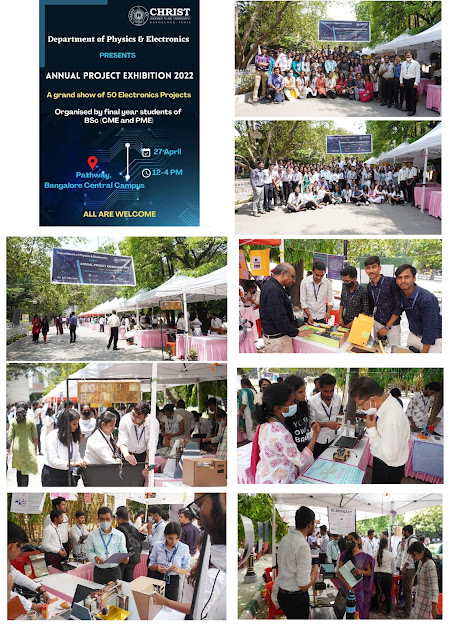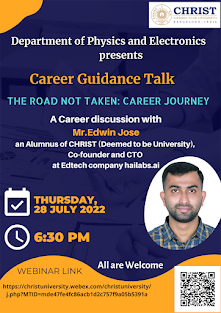Report on “i2R”, an awareness campaign 2022

The II year BSc (PME and CME) students had organized an Awareness Campaign “i2R”, under the guidance of faculty members from the Department of Physics and Electronics on Wednesday, 6 April 2022 in the pathway, Central campus from 11am to 2pm. The themes for the campaign were, Save Energy and E-waste & its management. The objective of the campaign was to enable students to describe the concept and create an awareness among the students from science and other deaneries about the energy related issues, e - waste hazards and its effective management. There were a total of 110 students grouped into 36 teams, they prepared innovative charts, posters and brought sample products, explained the theme to the visitors during the campaign. The campaign helped the participating teams to enjoy new learning method by sharing information about effective e-waste management, renewable energy sources. The visitors received a lot of useful information about various topics by interacting with the t


